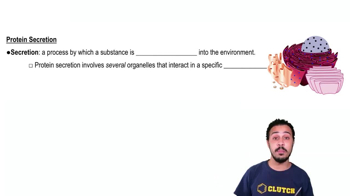Multiple Choice
Where does most nutrient reabsorption occur in the nephron?
194
views
 Verified step by step guidance
Verified step by step guidance Verified video answer for a similar problem:
Verified video answer for a similar problem:



 4:6m
4:6mMaster Introduction to Tubular Reabsorption with a bite sized video explanation from Bruce Bryan
Start learning